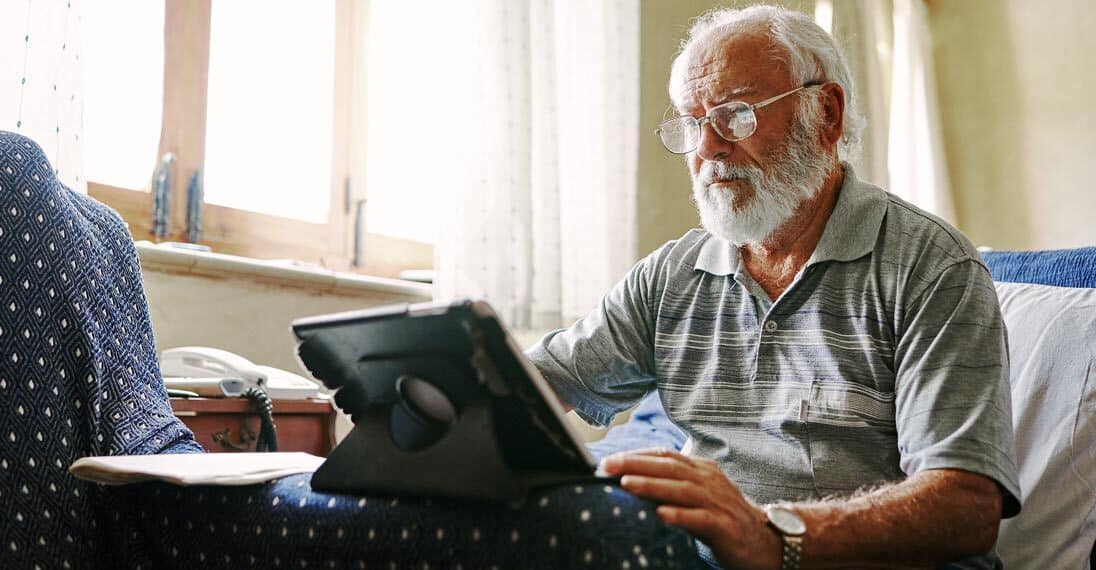
22 March 2022
Connecting With Care Webinar – ‘Making The Case For Social Prescribing’
In our Connecting With Care series of webinars, Eliot Parkinson of Beacon Strategies gave a presentation on the emerging concept of ‘Social Prescribing’ entitled ‘Making the Case for Social Prescribing’.
Elliot explained that his involvement in social prescribing over the last few years had been working with communities to find out why traditional health services are not meeting people’s needs and exploring more innovative ways of improving people’s health and well-being experiences.
A process called experience-based co-design was used in the research. The approach starts with exploring the experience health consumers were having. That was used to identify and understand underlying needs and inform the design of programs or service models that respond to those needs.
He started with a summary of the presentation with a few key points;
- Health systems are traditionally bad at considering non-medical aspects of someone’s health and wellbeing
- We know this because people experiencing these barriers consistently report it
- Social connection, joy, agency and meaningful occupation are both determinants and outcomes of good health
- Social prescribing is a contemporary way of thinking about health services and systems that incorporate non-clinical, community-based support
- System change will need new programs along with shifts in current practices and mindsets
The presentation was based on the findings of two pieces of work. The first was a project to co-design a model of social prescribing in the South Eastern NSW region, commissioned by Coordinaire, the South Eastern NSW Primary Health Network. The second was to co-design mental health initiatives on behalf of the South Western Sydney Primary Health Network.
Both projects used an approach of collaborative pairs where a health consumer was partnered with a healthcare professional or clinician and as a pair, worked through an experience-based co-design process to develop potential service improvements or, in this case, new models of care.
Following the summary, Eliot took the group through some direct comments that the mix of health consumers, people living with a chronic physical or mental condition, carers, health professionals and community care providers said.
He grouped them into three themes;
- Current Experiences of the health service,
- What people need and want and
- Why that isn’t happening already
The comments spoke powerfully about the limitations of the health services. There was a strong desire for people to be treated as a whole person and not just seen as a patient. Instead of being referred to as ‘the diabetic’ or ‘the heart failure patient’, people wanted to be addressed and treated more personally, for example, ‘Mr. Smith, who used to be a mechanic’.
On the positive side, comments talked about how socially supported people do better, are more motivated, have better health, and use health services more.
After the comments, a clear definition of Social Prescribing and how it works was given;
Social prescribing involves connecting health consumers with formal services and informal supports that are non-clinical non-medical, and social in their nature and intent. Generally, it’s a means by which GPs, nurses, other allied healthcare or primary healthcare professionals refer patients through using the language of prescribing to those services or supports that might be informal supports or formal services that meet social, emotional, and practical needs.
A model for Social Prescribing was suggested covering five high-level components;
- A whole community approach to referral and connection
- A single and localised information portal to access information about available supports
- A ‘coordinator’ role to engage with consumers and match them to relevant supports
- Linkage to a broad range of social programs and non-clinical supports
- Engagement and communication with consumers and health professionals to promote uptake of the service.
In concluding, Elliot made a point that the study had shown that what people had tapped into as services were less about the thing that people were being referred to and more about what it gave them. Things like meaning, purpose, joy, connection with others, getting out of the house motivation are all things that are linked to self capability and better health.
He finished with a comment from someone in the process who part-owns and manages a general practice. She talked about how her perspective of the health system from just being involved in conversations and hearing people’s experiences had shifted. She said, “I now look around the waiting room and don’t think we’ll solve the world’s health problems with prescriptions or diagnoses”.
We look forward to bringing more insights into the great work in this emerging reablement approach by others who presented at our Community Options Australia (COA) webinar.
To stay connected with more news and forums, follow us on LinkedIn and Facebook.



